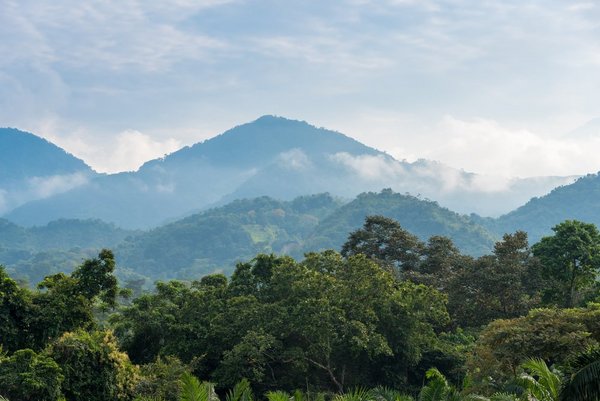 Read this article in French
Read this article in French- Share this article
- Subscribe to our newsletter
EU achieves milestone in the battle against deforestation
The expansion of agriculture is responsible for around 90 per cent of deforestation. The EU is the largest consumer market for deforestation-driving agricultural commodities next to China. This is why the new EU Regulation on deforestation-free products entered into force on the 29th June 2023 and is to apply to larger companies as of the 30th December 2024.
In future, businesses will have to ensure via due diligence obligations that relevant agricultural commodities have not led to deforestation of damage to forests since 2020, and that they have been legally produced. The regulation applies to coffee, cocoa, natural rubber, beef and leather, soy and timber as well as certain daughter products. In addition, in the context of a benchmarking exercise, the European Commission is to grade the deforestation risk of producing countries – with consequences for the extent of due diligence and controls by the responsible authorities.
This ambitious regulation incorporates a strengthening of the human rights and rights of Indigenous Peoples, robust traceability requirements, business support for smallholders and Article 30 on cooperation with partner countries on the consumer and producer side, which is unique in EU legislation.
The project SAFE – “Sustainable Agriculture for Forest Ecosystems” of the BMZ and the EU Commission
In order to support partner countries in implementing the regulation, Germany’s Federal Ministry for Economic Cooperation and Development (BMZ), in collaboration with Belgium, Denmark, France and the Netherlands as well as the EU Commission’s Directorate-General for International Partnerships (DG INTPA), is launching a global Team Europe Initiative.
One initial element is the joint project “Sustainable Agriculture for Forest Ecosystems” (SAFE) of the BMZ and GD INTPA, which is being implemented by Deutsche Gesellschaft für Internationale Zusammenarbeit (GIZ) GmbH and supports the putting into practice of the regulation in Brazil, Ecuador, Zambia and Indonesia with 40 million euros. Furthermore, GIZ has been commissioned by the BMZ to run projects to minimise agriculture-driven deforestation and integrate smallholders in deforestation-free supply chains in Indonesia, Côte d’Ivoire, Ethiopia, Ecuador, Colombia and Brazil.
The forthcoming Handbook on Deforestation, Forest Degradation and Due Diligence in Agricultural Supply Chains developed by the Organisation for Economic Co-operation and Development (OECD) and the United Nations Food and Agriculture Organization (FAO) will offer businesses inspiration for implementing the regulation. In addition, the BMZ is promoting multi-stakeholder partnerships at international level, such as the Tropical Forest Alliance (TFA) or the German forums for sustainable cocoa and sustainable palm oil.
Digital instruments like traceability systems play an important role in implementing the new regulation, for deforestation can only be identified by knowing the location of production in combination with satellite data. With INATrace, the BMZ-commissioned Initiative for Sustainable Agricultural Supply Chains (INA) has already developed an open-source traceability system which supports companies in complying with due diligence.
(giz-Pinboard/wi)
More information:





Add a comment
Be the First to Comment